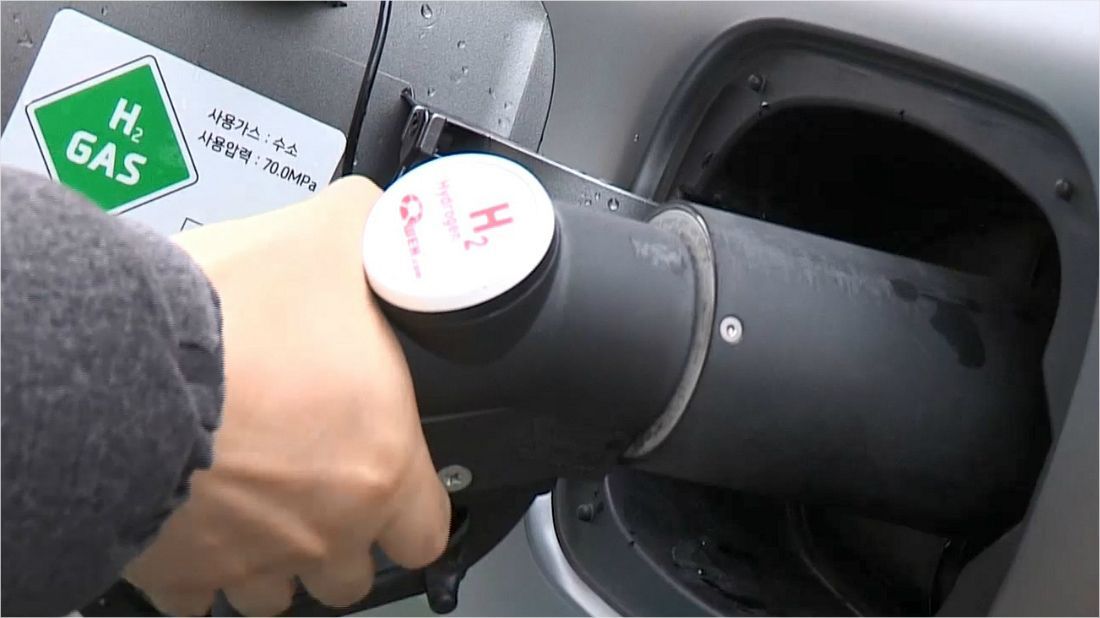Korea vows to build 250 more hydrogen stations by 2022
By Kim Da-solPublished : Oct. 22, 2019 - 15:28
Up to 250 hydrogen charging stations will be built across Korean cities and highways by 2022 to provide drivers access to hydrogen charging within 30 minutes of wherever they are, the government said Tuesday.
According to the government’s hydrogen infra establishment measure, jointly mapped out by the industry, transport and environment ministries, up to 190 hydrogen charging stations for vehicles and 60 charging stations for buses will be built over the next three years.
According to the government’s hydrogen infra establishment measure, jointly mapped out by the industry, transport and environment ministries, up to 190 hydrogen charging stations for vehicles and 60 charging stations for buses will be built over the next three years.

By 2040, up to 1,200 hydrogen stations will be established to help drivers find a station within 15 minutes, according to the government’s plan.
Currently, the number of hydrogen charging stations is 31, while the government is pushing to increase that number to 86 by year-end.
From four to six hydrogen cars can be charged at single charging station in an hour.
Ministries said they aim to roll out 67,000 hydrogen cars in the next three years, including some 2,000 hydrogen buses, and to meet demand of 30,000 tons of hydrogen annually.
As of October, there are 3,436 hydrogen cars in the country, an increase of well over three times from last year’s 891 units.
While the majority of hydrogen stations are now located in metropolitan areas -- three stations in Seoul, seven in Gyeonggi Province, six in Ulsan, five in the Gyeongsang provinces, three in Gwangju, two in Busan and the Chungcheong provinces and one each in Incheon, Daejeon and the Jeolla provinces -- the government said a lack of infrastructure and weak accessibility to the charging stations has led to the high supply cost of hydrogen.
By evenly installing hydrogen stations across the country considering the region’s population, land area and number of registered hydrogen and non-hydrogen vehicles, the government said it will pull down the price of hydrogen to as low as 7,000 won ($5.90) per kilogram and ultimately to 3,000 won by 2040. The current price is around 8,200 won per kilogram.
As part of the plan to stabilize the hydrogen price, the government said it will set up a “hydrogen distribution center,” working with Korea Gas Corporation to effectively distribute, manage and supervise the hydrogen supply.
Earlier this month, the government unveiled a plan to have electric and hydrogen cars make up 33 percent of all automobiles here by 2030, with an increase of 2.6 percent projected for this year.
By Kim Da-sol (ddd@heraldcorp.com)







![[From the Scene] Monks, Buddhists hail return of remains of Buddhas](http://res.heraldm.com/phpwas/restmb_idxmake.php?idx=644&simg=/content/image/2024/04/19/20240419050617_0.jpg&u=20240419175937)








![[From the Scene] Monks, Buddhists hail return of remains of Buddhas](http://res.heraldm.com/phpwas/restmb_idxmake.php?idx=652&simg=/content/image/2024/04/19/20240419050617_0.jpg&u=20240419175937)

![[KH Explains] Hyundai's full hybrid edge to pay off amid slow transition to pure EVs](http://res.heraldm.com/phpwas/restmb_idxmake.php?idx=652&simg=/content/image/2024/04/18/20240418050645_0.jpg&u=20240419100350)

![[Today’s K-pop] Illit drops debut single remix](http://res.heraldm.com/phpwas/restmb_idxmake.php?idx=642&simg=/content/image/2024/04/19/20240419050612_0.jpg&u=)